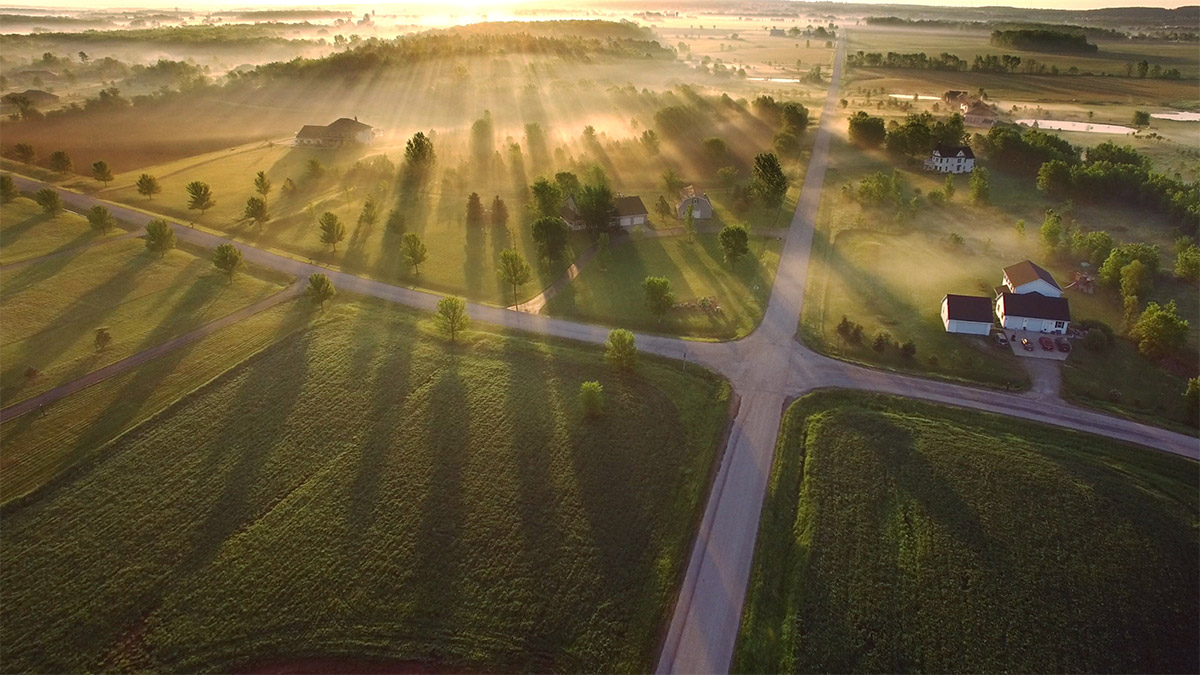
Rural Access to Justice through Mentoring
May 2021
Download This Article (.pdf)
It should come as no surprise to legal professionals that there is an access to justice problem in rural America.1 Access to justice is defined as the ability of people to seek and obtain a remedy for grievances through formal or informal institutions of justice.2 There is no access to justice where citizens (especially marginalized groups) fear the system, see it as alien, and do not access it; where the justice system is financially inaccessible; where individuals have no lawyers; where they do not have information or knowledge of rights; or where there is a weak justice system.3
Legal Deserts and the Rural Attorney
Colorado is no exception to the access to justice crisis, specifically as it pertains to a lack of lawyers in rural Colorado communities. The majority of Colorado lawyers practice in the Denver metro area or other smaller cities,4 creating legal deserts in many rural areas on the Eastern Plains and Western Slope. Only roughly 7% of Colorado attorneys reported practicing in smaller mountain or plains communities in the state in 2019.5 And in many rural jurisdictions, attorneys practice alone or in small firms, and are often the only attorney in their community.6
The combined obstacles of limited numbers and isolation creates a hurdle for rural attorneys when it comes to connecting with other lawyers and succession planning when it is time to wind down practice. A solo attorney who has been the only lawyer known to her rural community will leave a lack of access to services when she retires without another attorney to take over her practice.7 This creates not only an ethical issue for the attorney, but also an access to justice issue for her community.
In the communities already facing a lack of legal services, residents with legal needs must sometimes travel hundreds of miles to find legal services.8 Further, public defenders are rare commodities in rural America, meaning criminal defendants do not have the same access to their constitutionally provided legal representative as their Denver counterpart.9
Many states have attempted to address this crisis in unique ways. In South Dakota, the state bar association created a program that gave a select number of attorneys a financial incentive to move to rural communities throughout the state and practice law there for five years.10 In Washington, non-attorney advocates are granted a limited license status to provide basic civil legal services.11 And in Iowa, a program created by the state bar association encourages clerkships between law students and rural lawyers in the hope that the lawyers will hire the law students as associates after graduation.12
Colorado has worked to address its own access to justice crisis by staffing self-represented litigant coordinators and family court facilitators in each of the state’s 22 judicial districts.13 The state also offers more than 2,400 legal clinics, including remote clinics held online to provide assistance in rural areas.14 Colorado has also endeavored to address its residents’ legal needs through the formation of local access to justice committees in all but one of the state’s 22 judicial districts.15 And while these programs help the unrepresented litigant and resident with legal needs that can be addressed through these channels, they cannot solve the “acute lack of lawyers in rural areas” or the economic impact a lack of access to justice has on the community.16
What COVID-19 Has Taught Us
It has been more than a year since many of us were sent home to work remotely and become experts in Zoom meetings and breakout rooms. And while that has led to quarantine fatigue and an anxiousness to return to in-person social events, our newly developed skills in living and socializing virtually can be utilized in our approach to addressing the access to justice crisis.
Colorado had 27,255 active registered attorneys in 2019.17 If approximately 7% of those represent the mountains and plains, that means there are only about 1,900 active registered attorneys representing all of those geographical areas.
In the “quarantine life” of 2020, lawyers learned how to connect with their clients, colleagues, and community remotely, no matter where they are located geographically. The legal profession’s new embrace of remote law practice provides hope to rural residents who do not have access to legal services in their community. The opportunity to virtually consult with lawyers located in other parts of the state without the need for either party to travel is a game-changer in the traditional delivery of legal services model.
Further, where this gap in geographic location may have prevented those 1,900 rural attorneys from engaging with the remainder of the Colorado legal community pre-2020, we can continue to use our pandemic technology to assist local bar associations in reaching a larger audience, allowing them to provide networking opportunities, events, and benefits to their local lawyers on a smaller budget. Additionally, this technology will allow local bars to reach those attorneys in their jurisdictions who would otherwise be isolated from those resources.
Despite adapting to our new virtual life and profession as a result of the pandemic, there are still rural communities where technology and the internet aren’t reliable.18 The Colorado Legislature has worked to tackle this problem in the past,19 and some funding has been initiated to extend internet access for students and teachers during the pandemic.20 During his 2018–19 term, CBA President John Vaught focused on expanding broadband access in rural counties to prevent a further access to justice crisis in those regions.21 COVID has only solidified the need for lawyers to be involved in the legislative process and policy conversations about equitable access to broadband. This would ensure both that community members have access to legal services and rural lawyers have access to reliable internet to operate their practices and serve their clients, especially as practices remain remote or physically distanced.
Where Mentorship Can Provide Relief
In addition to the expansion of virtual practice techniques, the ongoing benefits of mentorship can serve to provide solutions for the access to justice crisis in rural Colorado. As a consequence of the pandemic, many small rural law firms were forced to lay off staff.22 Regardless of whether those firms are able to hire back some or all of their staff at a later date, mentorship can support rural lawyers in accessing co-counsel and contract counsel to assist in the workload where staff is limited and help is needed. A mentoring relationship can also provide guidance to rural lawyers in modifying their practice model and structure to help reduce overhead costs, pivot to remote lawyering, and offer rural clients struggling with financial pressures access to affordable legal services.
Mentorship is also a resource for building a pipeline of new lawyers seeking to work in rural communities. Like the program established in Iowa, by connecting new and young lawyers with established lawyers in rural locations, we can promote the opportunities for starting or joining a practice, as well as creating succession planning connections as lawyer’s transition out of practice, avoiding the resulting lack of access to justice in those communities.
Finally, mentorship can offer a solution to isolationism experienced by lawyers practicing in especially remote areas of Colorado. With the availability of virtual mentoring options, the community can provide lawyers anywhere in Colorado access to peer support and professional development.
Mentoring provides more than just a professional relationship, though. It also creates space for collaboration and creation, a place where new ideas can grow and solutions to problems can be devised and tested. Mentorship programs provide resources for attorneys to create their own pathway to success and to learn and grow at their own pace. Finally, mentorship can provide what rural attorneys in their solo practices and isolated legal communities lack by opening the door to resources and social engagement they may otherwise not have found.
Conclusion
Although fewer in number than their urban counterparts, rural lawyers and their clients are a critical part of our communities. It is the responsibility of each of us in the profession to assist in closing the justice gap in rural Colorado. To do our part, law students and practitioners should consider how they can take on a personal role in meeting this need. Whether by pursuing a practice in greater Colorado, providing virtual or remote legal services to communities in rural Colorado, or engaging in mentorship to offer peer support to rural colleagues, taking personal responsibility for creating equitable access to justice is a necessary commitment all Colorado lawyers should make to the community. We can and must learn from one another as we design strategies to meet the legal needs that rural people and their communities identify. With this in mind, bolstered by a new expertise in virtual practice, and with an appreciation for Colorado’s rural strengths and diversity, we can work together to devise solutions to the rural access-to-justice crisis that are as unique and vibrant as the communities across which they must ultimately be deployed.
Notes
1. Runge, “Addressing the Access to Justice Crisis in Rural America,” American Bar Association (July 1, 2014), https://www.americanbar.org/groups/crsj/publications/human_rights_magazine_home/2014_vol_40/vol_40_no_3_poverty/access_justice_rural_america.
2. United Nations Development Programme (UNDP), Programming for Justice: Access for All—A Practitioner’s Guide to Human Rights-Based Approach to Access to Justice (2005), https://www.un.org/ruleoflaw/files/Justice_Guides_ProgrammingForJustice-AccessForAll.pdf.
3. Id.
4. Colorado Supreme Court Office of Attorney Regulation Counsel (OARC), 2019 Annual Report, http://www.coloradosupremecourt.com/PDF/AboutUs/Annual%20Reports/2019%20Annual%20Report.pdf.
5. Id.
6. Runge, supra note 1.
7. Conference of State Court Administrators (COSCA), “2018 Policy Paper: Courts Need to Provide Access to Justice in Rural America” (2018), https://cosca.ncsc.org/__data/assets/pdf_file/0026/23399/policy-paper-1-28-2019.pdf.
8. Id.
9. Id.; Devine, “Equality Before the Law: Ending Legal Deserts in Rural Counties,” Georgetown J. on Poverty Law & Policy (Nov. 3, 2020).
10. COSCA, supra note 7.
11. Devine, supra note 9.
12. Karp, “No Country for Old Lawyers: Rural U.S. Faces a Legal Desert,” Law360 (Jan. 27, 2019).
13. Justice for All Colorado: Strategic Action Plan (Dec. 22, 2017), https://www.ncsc.org/__data/assets/pdf_file/0021/25518/co-jfa-plan.pdf.
14. Id.
15. Id.
16. Id.
17. OARC, supra note 4.
18. COSCA, supra note 7.
19. SB 18-002: Financing Rural Broadband Deployment (2018), https://leg.colorado.gov/bills/sb18-002.
20. HB 20B-1001: Grants to Improve Internet Access in P-12 Education (2020), https://leg.colorado.gov/bills/hb20b-1001.
21. Vaught, “Expanding Broadband Connectivity in Colorado: Why It Matters and How to Help,” 47 Colo. Law. 4 (Oct. 2018).
22. Braff, “COVID-19 and a slow economy have forced law firms of all sizes to cut costs,” ABA J. (Dec. 1, 2020), https://www.abajournal.com/magazine/article/covid-19-and-a-slow-economy-have-forced-law-firms-of-all-sizes-to-cut-costs.


